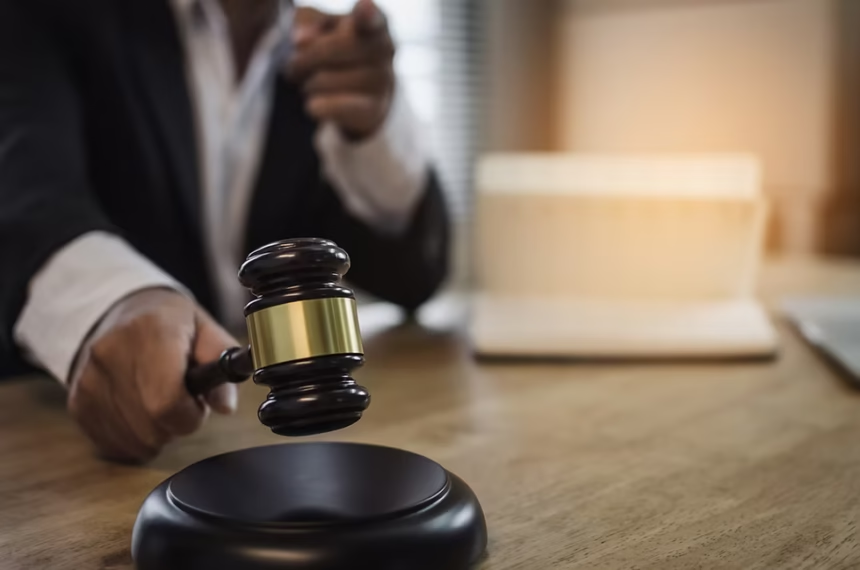Serving legal documents is a vital part of the litigation process, and doing it correctly can save time, stress, and potential setbacks. In the UK, strict rules govern how documents must be delivered, and missing a step can delay proceedings or even harm your case. Learning the right methods turns a complicated task into a smooth, manageable process, giving you confidence every step of the way.
Continue reading to learn how proper document serving can protect your case and ensure legal matters remain on track.
The Importance of Effective Document Serving
Serving legal documents is an important part of keeping the court process fair. In the UK, strict rules ensure everyone receives the correct information about a case. Proper service allows all parties to respond and protect their legal rights.
Legal Framework
In the UK, the Civil Procedure Rules (CPR) set clear guidelines for serving legal documents to ensure fairness in every case. Documents can be delivered in several ways, such as in person, by post, or even electronically if both parties agree. Knowing these rules is key to serving documents correctly and keeping the legal process smooth and effective.
Proper service ensures that all parties are aware of the proceedings. It also helps prevent delays and disputes in court.
Best Practices for Document Serving
Implementing best practices is key to ensuring that all legal documents are served appropriately. Here are some essential tips:
Hire a Registered Process Server
Hire a registered process server in London or work with legal professionals to handle document service. Their knowledge ensures that all rules are followed correctly. This reduces the risk of mistakes that could delay your case.
Professional servers also know how to deal with difficult recipients. Their experience ensures the documents are delivered properly and on time.
Confirm Addresses
Always double-check the recipient’s address before serving documents. Sending to the wrong or outdated address can cause delays or non-delivery. Accurate information helps the process run smoothly.
Verify the address through reliable sources or official records. Taking this extra step helps avoid wasted time and added costs.
Follow Up
After sending documents, follow up to make sure they were received. This step helps identify problems early. Confirming receipt keeps your case on track.
You can contact the recipient or request delivery confirmation. Regular follow-ups show diligence and help maintain proper communication.
Keep Records
Keep detailed records of the serving process, including dates, addresses, and methods used. These records can be vital if the service is challenged. Proper documentation protects your interests.
Store both digital and physical copies for easy access. Organized records can serve as proof of compliance in court if needed.
Be Aware of Time Constraints
Serve documents within the required timeframes. Different documents have different deadlines that must be met. Following these rules prevents delays and ensures compliance.
Check the specific timelines under the Civil Procedure Rules (CPR). Staying on schedule helps avoid penalties or case dismissal.
Methods of Serving Documents
Legal documents can be served using various methods, each with its advantages and challenges. Understanding these methods helps ensure that the chosen approach aligns with the case’s needs.
Personal Service
Personal service means delivering documents directly to the recipient. It is often the most reliable method because it provides clear proof that the person received the documents. If the recipient is hard to reach, hiring a professional process server in London can make the process easier.
This method ensures the recipient cannot deny receiving the papers. It also helps avoid delays that may occur with other delivery methods.
Postal Service
The postal service is a common method, especially for less urgent documents. Using registered or recorded delivery is important to get proof of service. Planning ahead is key, as different documents have different postal deadlines.
Always keep the postal receipt as evidence of dispatch. Sending documents early helps avoid missed deadlines or postal delays.
Electronic Service
Electronic service is becoming more common with advances in technology. Both parties must agree to this method, and documents should be sent to the correct email addresses. It saves time and provides immediate confirmation that the documents were received.
Make sure the files are in the correct format and easy to open. Always request a read receipt or acknowledgment for added proof.
Common Challenges in Document Serving
Even with the best intentions, several challenges can arise during the document serving process. Recognizing these challenges allows for more effective strategies to address them.
Non-Receipt of Documents
One of the primary challenges is ensuring that the documents are received. There can be instances where the recipient denies receipt, leading to potential disputes. This can be avoided by using personal delivery or registered mail, which give proof that the documents were received.
Always keep delivery receipts or acknowledgment forms as evidence. These records help prove that the service was completed properly.
Incorrect Addresses
Serving documents to the wrong address can result in delays and complications. It’s essential to conduct proper research to confirm the recipient’s location. Using a professional process server in London can help confirm addresses.
Double-checking contact details before sending saves time and prevents rework. Even small errors in addresses can cause major setbacks.
Objections and Challenges of Service
Sometimes, recipients challenge the service’s validity, arguing they were not properly served. This objection can complicate the case and lead to delays in court proceedings. Keeping meticulous records of the service process can provide defense against such claims.
Having witness statements or signed confirmations strengthens your position. Proper documentation ensures the court recognizes the service as valid.
Why Hire a Process Server?
Hiring a professional process server makes serving legal documents faster and more reliable. They know the rules, follow the law, and handle each step with care. Their professionalism helps reduce stress and ensures every document is delivered correctly.
Effective Follow-Up Strategies
Following up after serving legal documents ensures the process is completed correctly. It confirms that the recipient received the papers and helps prevent mistakes. Consistent communication with legal representatives keeps the process clear and running smoothly.
Make Your Home Sale Simple and Profitable
Selling to a cash home buyer can make the process faster and less stressful, and with a team like ours, you’ll have guidance at every step. From navigating cash offers to closing a deal that works in your favor, we help you make the most of your sale. Take action today and connect with us to secure a smooth, successful home-selling experience.
Explore our blog for more tips and insights to get the best results.


